Gordon Peters in 1991
Stuart Rodgers Reilly Photography
The Chicago Symphony Orchestra family mourns the passing of Gordon Peters, who served as principal percussion from 1959 until 2001 as well as a conductor and administrator of the Civic Orchestra of Chicago from 1966 until 1987. He died on August 26, 2023, at the age of 92.
Gordon Peters was born on January 4, 1931, in Oak Park and grew up in Cicero, Illinois, where he first studied piano at the age of six. He began his orchestral career in the fifth grade, later performing in the J. Sterling Morton High School Orchestra and Band programs under Louis M. Blaha. As a teenager, Peters was timpanist of the Roosevelt College Orchestra and the Chicago Youth Symphony Orchestra. His primary percussion teachers included Harry J. Brabec (CSO principal percussion from 1951 until 1956), Roy Knapp, Otto Kristufek, José Bethancourt, Clair Omar Musser, Saul Goodman, Morris Goldenberg and William Street.
Peters spent three years in the U.S. Military Band at West Point. He went on to earn both bachelor’s and master’s degrees from the Eastman School of Music, where he founded the Marimba Masters. This unique seven-member ensemble appeared several times with both the Rochester and Buffalo philharmonic orchestras and played numerous professional engagements in New York state, including radio and television shows with Arthur Godfrey in 1955 and Ed Sullivan in 1958. Peters also studied conducting with Pierre Monteux in Hancock, Maine, and received the Monteux Discipleship Award in 1962. He performed with the Rochester Philharmonic Orchestra under Erich Leinsdorf and was a member of the Grant Park Symphony Orchestra from 1955 until 1958.
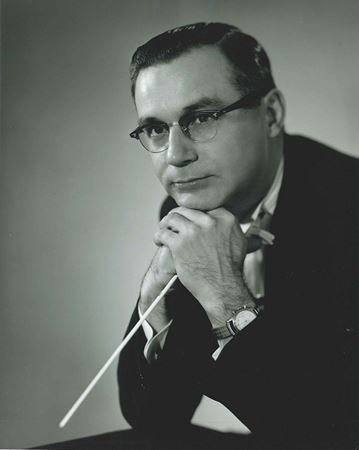
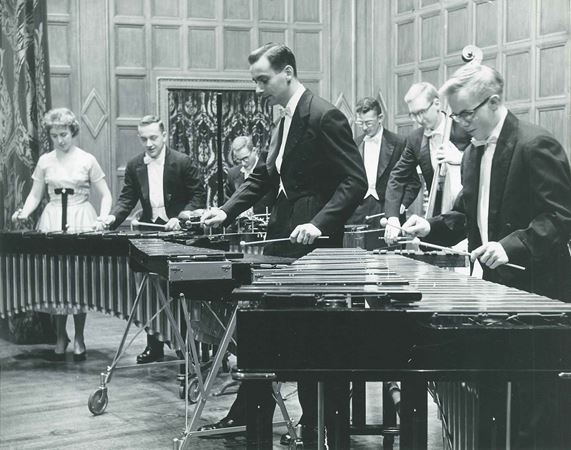
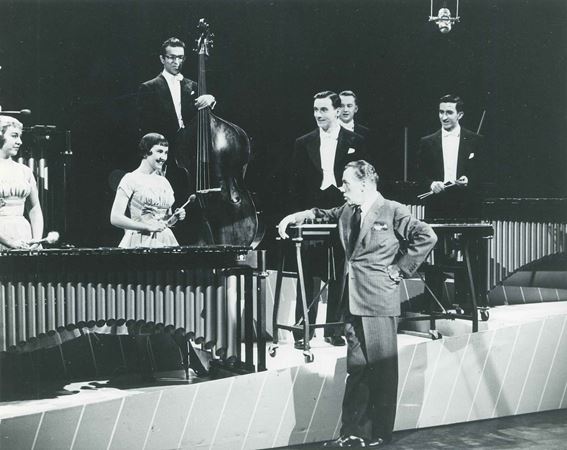
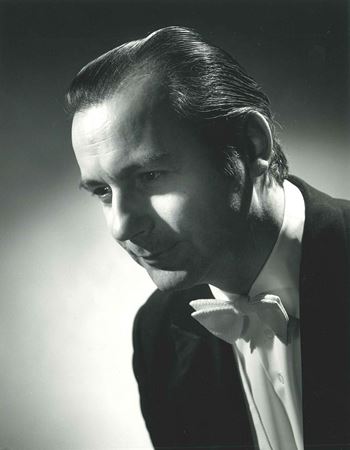
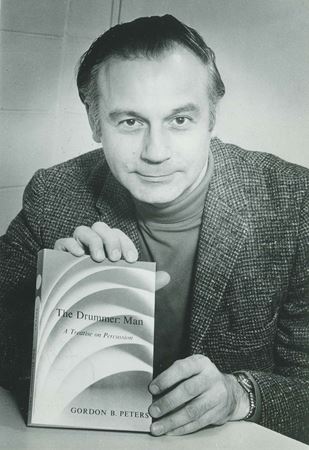

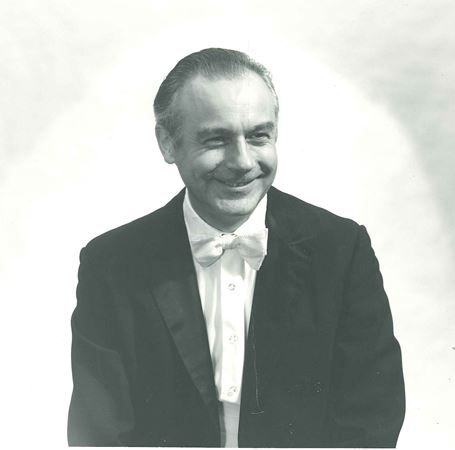
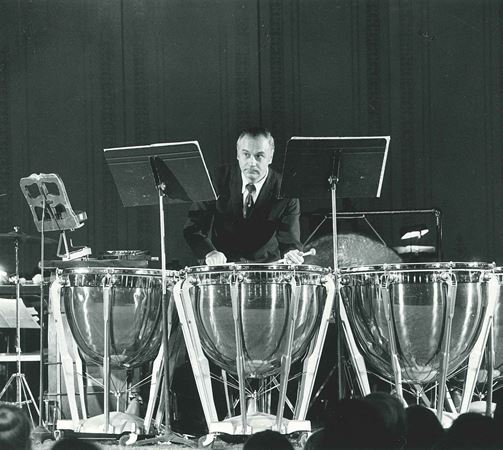
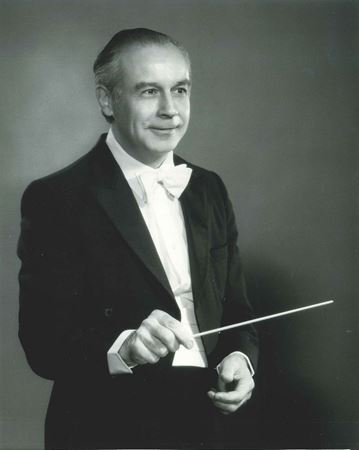
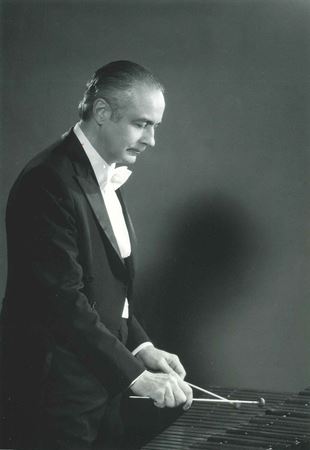
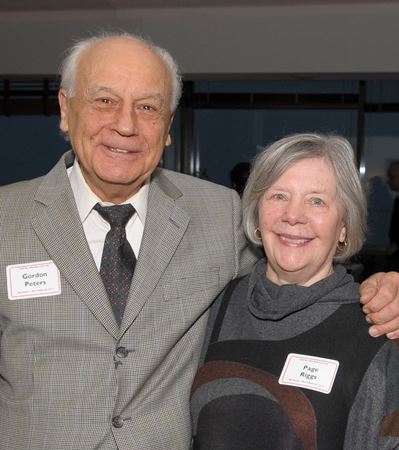
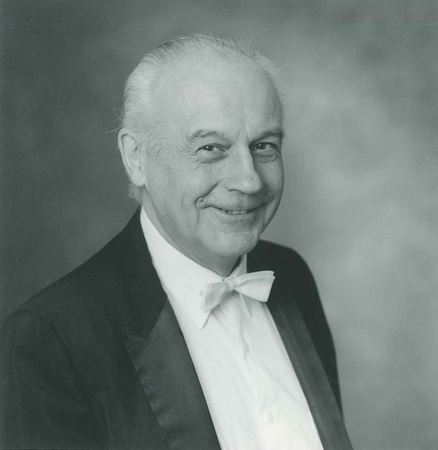
In 1959, Peters was invited by Fritz Reiner to become principal percussion of the Chicago Symphony Orchestra, with whom he also appeared as soloist on several occasions. In 1987, he completed a 22-year tenure as conductor and administrator of the Civic Orchestra of Chicago — the CSO’s training orchestra — a post to which he was appointed by Jean Martinon. During this time, the Civic gave 52 Chicago premieres (29 by American composers) and the world premiere of Gustav Mahler’s Tenth Symphony as realized by Chicagoan Clinton Carpenter. Among the works Peters introduced to Chicago audiences were Bartók’s Four Pieces for Orchestra, Varèse’s Amériques and works by composers as diverse as Carl Ruggles, Frank Proto, Antonio Salieri and Adrzej Panufnik.
Peters was on faculty at Northwestern University from 1963 until 1968 and served as music director of the Elmhurst Symphony Orchestra from 1968 until 1973. He also was assistant conductor and member of the board of directors of the Chicago Youth Symphony Orchestra for twenty years. In 1993, Peters conducted the Bangor Symphony Orchestra in Maine in a memorial concert honoring conductor and composer Werner Torkanowsky.
He composed the popular Swords of Moda-Ling for percussion ensemble, and he arranged several works for marimba ensemble. In 1975, Peters authored and published The Drummer: Man, an extensive treatise on percussion, in addition to numerous articles and pedagogic outlines.
Peters served as the first national president of the Percussive Arts Society from 1962 until 1966, and in 2004, he was inducted into the society’s hall of fame. He also was a member of the board of directors of the Conductors Guild from 1979 until 1990, and he was a longtime member of the Chicago Symphony Orchestra Alumni Association. In 2000, Terry Applebaum, a former student of Peters’, endowed the Gordon B. Peters Principal Timpani Chair in the Chicago Youth Symphony Orchestra. In his retirement he enjoyed antiques, graphics, books, gardening and spending time at a summer home in Hancock, Maine.
Gordon Peters is survived by his widow Elizabeth Page Riggs, and there will be no services.
This article also appears here.



